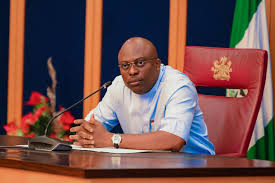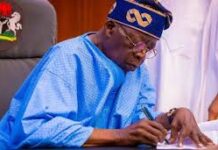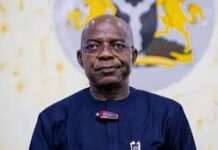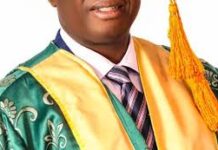Violence escalated On the October 2024 following the local government elections. These elections resulted in the appointment of 23 council chairmen from the Accord People’s Party (APP), a party linked to Governor Siminalayi Fubara. This result sparked outrage among opposition supporters, who claimed the elections were rigged with reports of arson, explosions, and shootings at multiple local government secretariats. In areas like Eleme, Ikwerre, Emohua, and Isiokpo, protesters set buildings ablaze and clashed with supporters of the newly elected chairmen and in Ikwerre, a newly constructed secretariat building was burned down, while gunmen surrounded the Obio-Akpor council, leading to heavy gunfire. In some cases, protesters prevented the newly elected officials from accessing their offices. This unrest has resulted in fatalities and widespread destruction of public property.
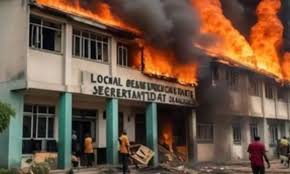
The Local Government Chairmen
The 23 local government chairmenThe 23 local government chairmen were elected under Wike’s administration and proved their loyalty to him after Fubara lost control of the People’s Democratic Party (PDP) in the state to Wike, and directed these chairmen to contest under the banner of the All People’s Party (APP) instead of the PDP, ahead of the October 2024 elections. Some of the chairmen have openly resisted Fubara’s influence and accused Fubara of withholding their security votes, which is important for governance and protecting their regions. They used the amendment in the local government law that extends their term for six months demanding that they remain in office beyond their original tenure. Most of these chairmen were from the Action People’s Party (APP), which won in 22 out of the 23 local government areas, while one candidate from Action Alliance (AA), Uzodinma Nwafor, won in Etche. Many of the elected officials, such as Mrs. Tonye Oniyide and Dame Anengi Barasua, are returning figures from previous administrations or were previously serving as caretakers.
There are no publicly available records of significant criminal accusations or legal issues directly involving any of the 23 local government chairmen in Rivers State but the chairmen have been accused of defying the governor’s directive to vacate office after their tenures expired. Many of them are believed to be loyalists of former governor Nyesom Wike.
In the last Rivers State local government elections, held in 2021, there were also reports of political tension and violence, but not at the scale seen in the 2024 elections. Governor Wike, a member of the People’s Democratic Party (PDP), was firmly in control of the states roots at the time. His influence was so strong that the PDP won all 23 local government chairmanship seats in 2021, which raised concerns among opposition parties and civil society organizations about the fairness of the electoral process.
Who is Siminalayi Fubara?
Siminalayi Fubara, the Governor of Rivers State faced several legal challenges during his administration. In December 2023, Fubara assented to a ₦800 billion budget passed by a faction of the House of Assembly, which was subsequently deemed unconstitutional by a Federal High Court. The court ruled that the budget’s approval by only five out of 31 lawmakers was invalid, emphasizing the need for a properly constituted assembly to pass such legislation. Other allegations have surfaced that Fubara attempted to undermine the autonomy of the States House of Assembly by inviting them to intervene, possibly take over its functions. And although there are allegations that a political agreement involving Fubara, Wike, and President Tinubu was made, possibly to consolidate political power in Rivers State, no concrete evidence has been widely confirmed in public documents or authoritative legal proceedings. 
Nyesom Wike as Governor of Rivers State
During Nyesom Wike’s two terms as Governor of Rivers State (2015-2023), his approach to governance, particularly at the local government level marked by a strong central control and significant infrastructure development. Wike was known for his aggressive style in managing both political and developmental matters, often exercising a high degree of authority over local government affairs. This approach created a notable contrast with his successor, Siminalayi Fubara, whose time in office has been defined by legal disputes and political tensions.
Wike frequently bypassed local councils, accusing them of inefficiency and corruption. He implemented the Rivers State Development Initiative, which allowed the state to take direct control of infrastructure projects, further limiting the role of local councils. In 2018, he dissolved the local councils and replaced them with Caretaker Committees, sparking criticism for undermining local democratic institutions. His approach to local government finances also saw the state assuming control over federal allocations meant for councils, increasing his grip on resources. Politically, Wike emphasized loyalty, rewarding compliant chairmen with more autonomy, while sidelining those who opposed him. Siminalayi Fubara faced a much different reality. His relationship with local government chairmen, many of whom were appointed or elected under Wike, has been marked by resistance and disputes over power. Legal challenges have also plagued his administration, including a recent court ruling that invalidated his ₦800 billion budget due to constitutional issues. Unlike Wike, Fubara has struggled to maintain the momentum of large infrastructure projects, facing both political friction and accusations of trying to centralize power himself. While Wike’s tenure was marked by direct control and limited opposition from local councils, Fubara’s early days have been overshadowed by legal battles and challenges in managing local government relations.
To move Rivers State forward, the local governments will need to collaborate closely with Governor Fubara, overcoming the current resistance and political friction. Effective governance and development require a balance between local autonomy and state oversight, ensuring that resources are properly managed and distributed. By fostering cooperation and addressing legal and administrative challenges, local councils and the governor can implement critical projects that benefit the state’s citizens, while avoiding further legal disputes or power struggles that hinder progress.

